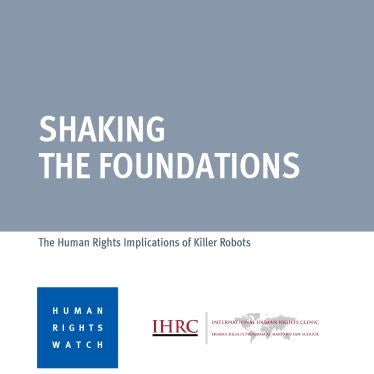Congress should pass legislation to protect civilians from the deadly effects of cluster munitions, Congressman Jim Moran, Nobel Peace Prize Laureate Jody Williams and Lynn Bradach, mother of a Marine killed by a US cluster submunition in Iraq, said today.
On Monday, November 5, the speakers will gather near the US Capitol Building in front of 100 silhouettes representing civilian victims of cluster munitions as part of a Global Day of Action that includes activities in 20 countries.
“Cluster munitions kill and maim far too many civilians and they’re not that useful to the military,” said Williams, winner of the 1997 Nobel Peace Prize, along with the International Campaign to Ban Landmines (ICBL). “The US tried to ignore the global movement to ban landmines and it shouldn’t repeat that mistake by trying to keep hold of its cluster munitions.”
“The US military doesn’t need outdated cluster munitions, the dumbest of dumb weapons. Congress should make their elimination a priority,” said Moran. “Too many innocent lives are being lost because of these outmoded, Cold War-era munitions.”
Cluster munitions endanger civilians because each bomb, rocket or artillery shell contains dozens or hundreds of submunitions (bomblets) that are scattered indiscriminately over a broad area, virtually guaranteeing civilian casualties when fired into populated areas. The weapon also leaves a large number of unexploded bomblets, or “duds,” that become de facto landmines, killing or maiming people who come into contact with them long after a conflict ends.
These duds also endanger friendly forces and peacekeepers that have to operate in areas where cluster munitions were used. “The US military should stop using these weapons – not only do they kill innocent civilians, they even kill our own troops,” said Bradach, whose son, a Marine serving in Karbala, Iraq, was killed instantly when a fellow soldier triggered an unexploded cluster munition in 2003.
The United States maintains a stockpile of cluster munitions containing about 1 billion submunitions and has used the weapon, with devastating consequences, in Southeast Asia (Cambodia, Laos, Vietnam) in the 1960s and 1970s, the Persian Gulf (Iraq, Kuwait, Saudi Arabia) in 1991, the former Yugoslavia (including Kosovo) in 1999, Afghanistan in 2001 and 2002, and Iraq in 2003.
Legislation introduced into the Senate (S 594) by Senators Dianne Feinstein and Patrick Leahy and the House (HR 1755) by Representatives Jim McGovern, Betty McCollum, and Darrell Issa would, if passed, prohibit the use of cluster munitions in populated areas and prohibit the use and transfer of cluster munitions with submunitions that have a failure rate of 1 percent or more. Moran is a co-sponsor of the House legislation.
Current US policy prohibits the procurement of new submunitions with a failure rate of 1 percent of more, but applies no restrictions on the huge existing stockpile. Only some 30,000 of the 1 billion submunitions in the US arsenal today have an official failure rate of less than 1 percent.
Organized in Washington, DC, by the US Campaign to Ban Landmines (USCBL), the Global Day of Action on Cluster Munitions is part of a larger effort sponsored by the Cluster Munition Coalition (CMC), with activities taking place in more than 20 countries around the world. The coalition is calling on all governments to adopt immediate national moratoria on the use of cluster munitions and to join the international effort known as the Oslo Process to develop a treaty banning cluster munitions by the end of 2008. In one month, delegates from more than 80 countries, but not the US, are expected to meet in Vienna, Austria, to begin negotiations on the text for the new treaty.
“The countdown to a ban on cluster bombs has begun, and it’s about time the US government joined in the talks,” said Williams. “But until the Bush administration acts, it’s up to Congress to protect civilians from these lethal weapons.”
The USCBL is a coalition of approximately 500 US-based human rights, humanitarian, faith-based, children’s, peace, disability, veterans’, medical, development, academic, and environmental organizations.






